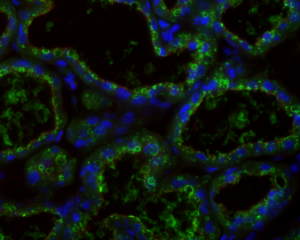Nutrition
Nutrition
Program Website: https://sph.unc.edu/nutr/unc-nutrition/student-life/nutr-degrees/
Director of Graduate Studies: Ian Carroll, PhD

Student Services Specialist: Lena Hudock
Program Overview
The Department of Nutrition is committed to understanding the mechanisms of metabolism and nutrient action in human health and disease from a cellular and molecular perspective. Ongoing research interests include adipocyte biology, oxidants and antioxidants, nutrient-cancer interactions, relationships between lipid metabolism and insulin resistance, genetics of obesity and exercise, nutritional influences on immune function and the molecular biology of nutrient-related diseases such as obesity, diabetes and atherosclerosis.
Coursework
The underlying philosophy that guides the structure of our doctoral training program is that students who earn a PhD in Nutrition at UNC should have basic knowledge and understanding of the underlying biology of nutrition/health/disease relationships, nutrition epidemiology and nutrition intervention and policy. Our curriculum is designed to provide basic coursework in each of these areas while allowing students the flexibility to take other courses specific to their own career goals and specializations.
The Department of Nutrition is uniquely situated in both the Gillings School of Global Public Health and the Medical School. The core courses focus on macro- and micronutrients and their effects on normal and abnormal human metabolism. Advanced courses include Advanced Metabolism (NUTR845) and 2 electives that can be nutrition-specific courses such as NUTR861 Nutrition and Immunology or NUTR862 Epigenetics in Nutrition or can be from other departments (e.g. CBIO643 Cell Biology and MCRO614 Immunobiology). In the fall of their 3rd year, Nutrition students take NUTR994 Elements of Being a Scientist, a course that stresses professional development, including grant-writing, public speaking and ethics. There are three core courses required by the School of Public Health: BIOS600, EPID600 and SPHG600.
Qualifying Exams
Our comprehensive exam is designed to test competency and critical thinking skills in nutritional biochemistry, nutritional epidemiology and nutritional intervention and policy. The specialization-specific exam tests knowledge and critical thinking skills based on the student’s unique coursework. This written examination is followed by an oral examination several days later. The oral exam is designed to probe further in areas that appear deficient on the written exam. The integrative section of the comprehensive exam tests the student’s ability to address a research question in its broader context, that is, to discuss the basic biology, epidemiology and intervention/policy implications of a nutrition issue. The integrative exam is an open book, take-home examination with a prescribed work limit that the student has 3 days to complete.
Additional Requirements
- Seminar Requirements: Students take NUTR885, doctoral seminar, each semester of their second year.
- Teaching: Students serve as a teaching assistant in departmentally approved courses for one semester.
- Publication Requirement: We expect PhD students to complete at least two first-authored publications.
